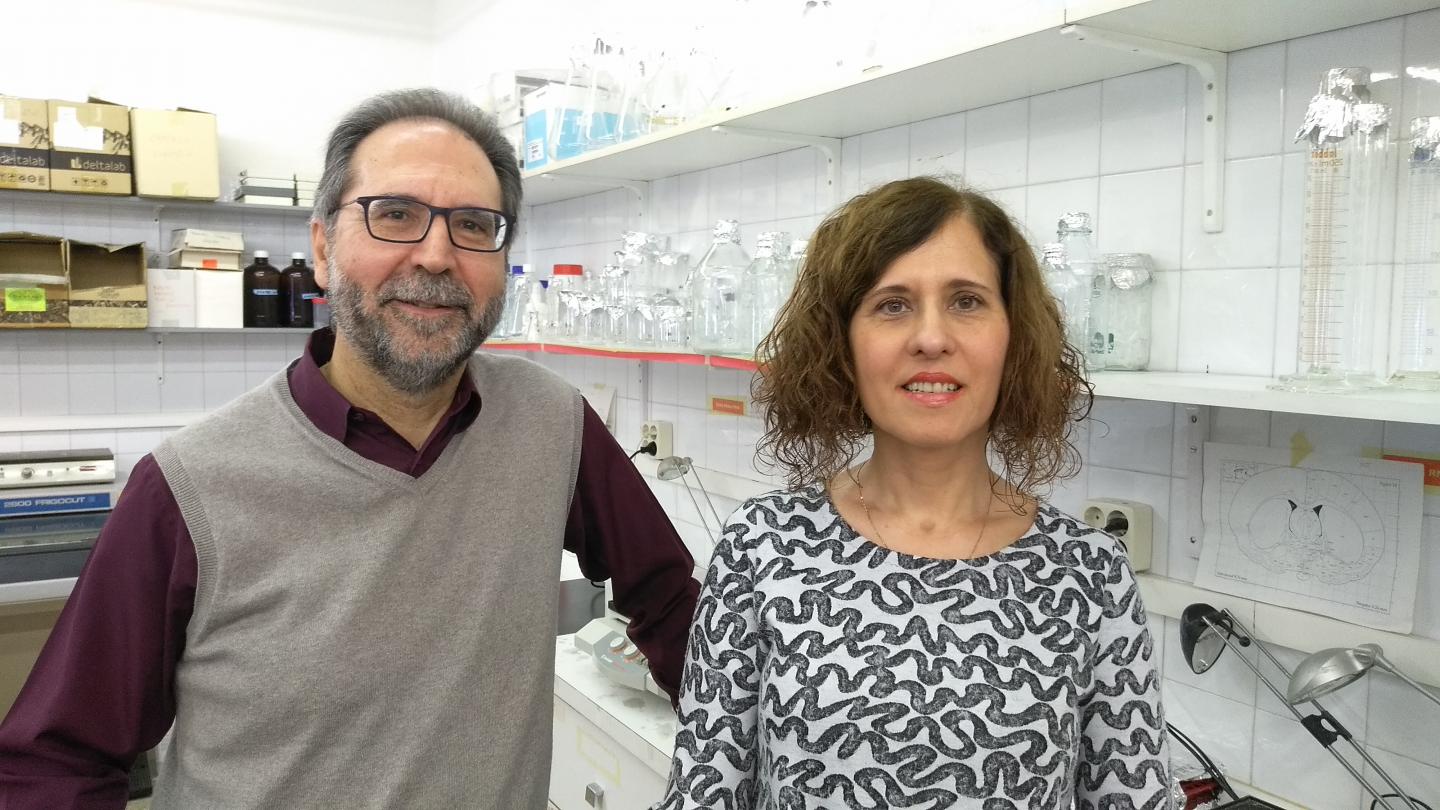
Credit: UAB
Researchers from the Institute of Neuroscience of the Universitat Autònoma de Barcelona (INc), led by Roser Nadal and Antonio Armario, conducted a study on the factors which reduce the effects of stress. The research, appearing today in the journal Scientific Reports, used three groups of male rats to measure these effects. One group underwent several sessions of stress during their adolescence, which they could control (by stopping or preventing) by acting in a certain manner. A second group received the same amount of stress sessions as the first group, but their behaviour had no effect (uncontrollable stress). A third group acted as a control group and underwent no stress.
During the exposure to stress, researchers quantified the intensity of their reaction by measuring the endocrine response through the activity of the hypothalamic-pituitary-adrenal axis (HPA axis). In the adult stage, several experiments were conducted to measure different cognitive variables and the expression of dopamine type 2 receptors in the dorsal striatum, an area of the brain relevant to the behaviours measured. Part of these data forms part of the PhD thesis of INc researcher Maria Sanchís Ollé, first author of the paper.
The results indicated that HPA activation induced by controllable and uncontrollable stress was the same in the first exposure to stress. However, with repeated exposures the controllable stress group demonstrated an attenuated HPA response. In their adult stage, the animals exposed to uncontrollable stress in adolescence developed an increase in motor impulsivity and a decrease in cognitive flexibility, effects which were not made evident in those animals exposed to controllable stress. Other aspects (attention and cognitive impulsivity) were not observed to have been affected by stress. At the same time, the behavioural effects of uncontrollable stress were associated with an increase of the number of dopamine type 2 receptors in the dorsal striatum (but not in other sub-divisions), a structure involved in impulsivity and cognitive inflexibility.
“Despite the fact that being exposed to situations of stress has short and long-term negative effects on behaviour and physiology, there are several factors which could mitigate its impact. We have observed that one of these factors is the possibility of having control over the source of stress”, affirms Roser Nadal.
The study has several preventive implications and points to the fact that strategies aimed at increasing the perception of stress controllability during adolescence could mitigate the negative effects of stressful experiences in the adult age and reduce vulnerability to certain psychopathologies.
###
Media Contact
Octavi López Coronado
@UAB_info
34-935-813-301
Related Journal Article
http://dx.




